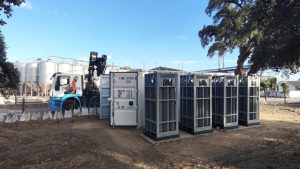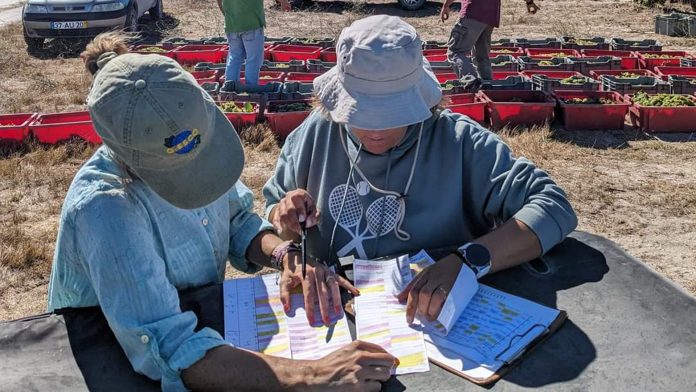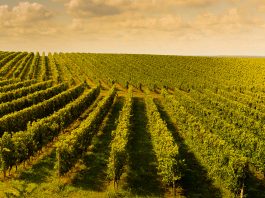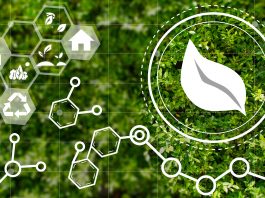The wine sector must have a bigger role in how vineyards and wineries reach EU goals regarding the reduction of GHG. Not just by using fewer pesticides, but also by using alternatives to pesticides, capturing CO2, reducing water consumption, and addressing other major challenges.

In the March edition,1 AVIPE presented several projects where sustainable issues in the wine sector were addressed in different ways: LIFE’s H2OLock project2 to reduce water loss; REVINE’s project3 to discover new biocontrol solutions against vineyard diseases; SUSMEDHOUSE’s project4 to implement efficiency and IA in nurseries; and REDWINE’s project5 to reduce the emissions of CO2 in wine fermentations.
The 2023 harvest in Portugal has finished. The year was dry and hot, and in some cases, only one or two phytosanitary treatments against diseases had been carried out. However, if diseases weren’t a problem, pest control was, and farmers had much difficulty controlling them.
Projects to drive sustainability in the wine sector
The REDWINE project also has the goal of studying the possible effects of chlorella as a biofungicide and biostimulant. Two trials were conducted against downy mildew and heat stress. There have been some promising results, but we will only have the final results in 2025. These trials are implemented with random blocks and consider several modalities like control, commercial solutions, and organic solutions.
Also, in this harvest, the unit used to capture and store CO2 was installed by NOVIS in Palmela’s cooperative winery. It was possible to collect almost one tonne using a 20,000L tank two times. The process needs some corrections, but it worked very well. We are now ready to use it in the production of chlorella biomass and start the development of new food and cosmetics.
Since last year, we have also used chlorella in the white wine fining process, and compared it with bentonite, the most commonly used product in the wine sector for this process. Bentonite has a strong aggregate action, but this could also reduce the colour and aroma. So far, chlorella has worked well and suggests a possibility of reducing the amount of SO2 in wines. We have observed that, after alcoholic fermentation, without the use of SO2, wines that had chlorella in the fining process could avoid oxidation for a longer time than the ones without. SO2 is an antioxidant and preservative that has been used for a long time in the food industry.
In recent years, SO2 has been connected to several effects on human health, therefore, the reduction in the use of SO2 in the wine sector is being encouraged. Alcoholic fermentation is the transformation of sugar into alcohol. When chlorella is under stress, like with an increase in alcohol, it can expel beta-carotene, which is an antioxidant. This explains the positive results, but more tests need to be carried out.
The REVINE project has also performed several trials in the 2023 grapevine season. The use of consortiums coming from the soil microbiome was also considered in the biofungicide trial. In this case, it was applied to the soil to infect the roots and trigger a defence answer from the plant. The results were interesting, but next year, there will be further trials.
A bacteria consortium taken from sea algae was also used to understand its possible use as a protector against heat stress. The lab results were really promising, but we needed to demonstrate if the results in the field were also promising. Heat stress is a major problem in Setubal’s region and can reduce up to 60% of yields. In this trial, we also used chlorella, shadow nets, kaolin, and other modalities. The results weren’t as good as the ones obtained in the lab, but it showed better performance than other solutions. It’s clear that when temperatures rise to 40ºC, only a few solutions work. The solar exposition, grapevine variety, and canopy management can have a bigger effect than using some products. The shadow nets have had really good results, but the investment to purchase and install is a major handicap.

H2OLock will install solar panels at the Portugal location in November, and blocks to avoid evaporation of the pond in February. It’s estimated that this will allow the farmer to produce all the required energy they need.
Sustainable farming is crucial
Farming and all agro-industrial activities must try to become more sustainable. This means not just working in balanced conditions but also making healthier produce with a smaller carbon footprint.
In the wine sector, several activities have been carried out already, but it’s important that consumers also recognise these practices and understand that these efforts must be paid for. It’s also a matter of rural development, territorial improvement, and social valorisation.
References
- The Innovation Platform – Issue 13
- LIFE H2OLock project
- REVINE
- SUSMEDHOUSE
Please note, this article will also appear in the sixteenth edition of our quarterly publication.





